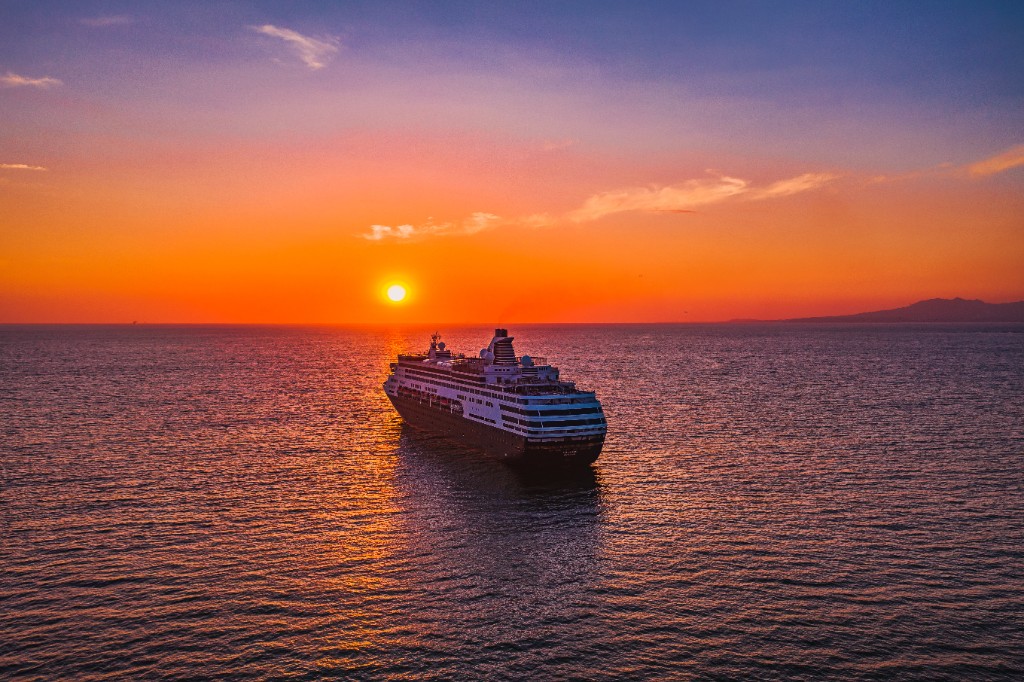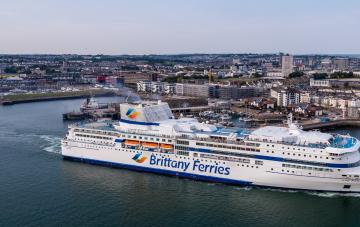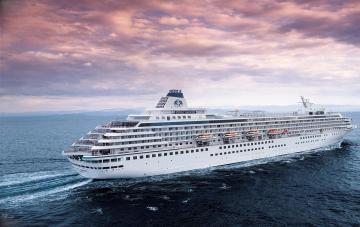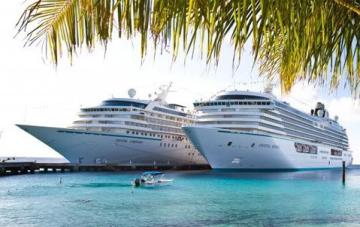
Planning a cruise can be an exciting experience, but it's important to prioritize safety while enjoying your vacation. Whether you're a first-time cruiser or a seasoned traveler, being aware of essential cruise ship safety tips can help ensure a smooth and secure journey.
One of the most important aspects of cruise ship safety is familiarizing yourself with the emergency procedures and evacuation plans. Pay attention to the safety briefing at the beginning of your trip and take note of the location of life jackets, emergency exits, and assembly stations. In case of an emergency, knowing what to do and where to go can make a significant difference.
Another crucial tip is to always be aware of your surroundings. While cruise ships offer a variety of amenities and activities, it's essential to stay alert and vigilant. Keep an eye on your belongings and be cautious of any suspicious behavior. If you notice anything unusual, report it to the ship's security personnel immediately.
Additionally, it's advisable to pack a small travel first aid kit. While cruise ships have medical facilities on board, having basic supplies like band-aids, pain relievers, and motion sickness medication can come in handy. It's better to be prepared for minor injuries or illnesses and avoid any inconvenience.
Remember, safety should be a top priority during your cruise vacation. By following these essential tips and being proactive, you can ensure a memorable and secure experience on board.
Preparing for Your Cruise
Before embarking on your cruise, it's important to make sure you are prepared for a safe and enjoyable journey. Here are some essential tips to help you get ready:
1. Research the Cruise Line:
Make sure to do your homework and research the cruise line you will be sailing with. Check their safety record, reviews from previous passengers, and the emergency procedures they have in place.
2. Pack Appropriate Clothing:
Check the weather forecast for your destination and pack accordingly. Make sure to bring comfortable shoes for walking on the ship and any excursions you may have planned.
3. Get Travel Insurance:
It's always a good idea to have travel insurance that covers medical emergencies, trip cancellations, and lost luggage. This will give you peace of mind during your cruise.
4. Prepare Your Documents:
Make sure to bring all necessary travel documents, including your passport, visas, and any health documents required for your destination. Keep copies of these documents in case of loss or theft.
5. Pack a First Aid Kit:
While cruise ships have medical facilities, it's always a good idea to have a basic first aid kit with you. Include items like band-aids, pain relievers, motion sickness medication, and any prescription medications you may need.
6. Familiarize Yourself with Emergency Procedures:
Take the time to read the safety information provided by the cruise line. Familiarize yourself with the location of emergency exits, life jackets, and evacuation procedures in case of an emergency.
7. Stay Hydrated:
Drink plenty of water throughout your cruise to stay hydrated, especially if you are spending time in the sun or participating in physical activities.
Популярные статьи
8. Practice Good Hygiene:
Wash your hands regularly with soap and water, especially before eating. Use hand sanitizer when soap and water are not available. This will help prevent the spread of germs and illnesses.
By following these tips and taking the necessary precautions, you can ensure that you are well-prepared for your cruise and have a safe and enjoyable experience on board.
Staying Safe Onboard
When you're on a cruise ship, it's important to prioritize your safety to ensure a smooth and enjoyable voyage. Here are some essential tips to help you stay safe onboard:
1. Familiarize yourself with the ship's layout
Take some time to explore the ship and familiarize yourself with its layout. Locate the emergency exits, muster stations, and lifeboats. Knowing where these important areas are can be crucial in case of an emergency.
2. Follow all safety instructions and drills
Pay attention to safety briefings and participate in safety drills. These drills are designed to prepare you for emergencies and it's important to take them seriously. Follow the instructions given by the crew and familiarize yourself with the location of life jackets and other safety equipment.
3. Practice good hygiene
Washing your hands regularly and using hand sanitizer can help prevent the spread of germs and keep you healthy onboard. Follow any additional hygiene protocols that the ship may have in place, such as using handrails when walking on stairs.
4. Be cautious on deck
When walking on deck, be mindful of any wet or slippery surfaces. Use handrails and take your time to prevent slips and falls. Avoid leaning over railings or sitting on them, as this can be dangerous.
5. Stay informed about the ship's activities
Keep track of the ship's daily activities and any safety announcements. Familiarize yourself with the ship's policies and guidelines to ensure that you can enjoy your time onboard while staying safe.
6. Use secure storage for valuables
Keep your valuables safe by using the in-room safe or any secure storage provided by the ship. Avoid carrying large amounts of cash or displaying expensive jewelry in public areas.
7. Be mindful of alcohol consumption
Drink responsibly and be aware of your alcohol consumption. Excessive drinking can impair judgment and increase the risk of accidents. If you choose to drink, do so in moderation and know your limits.
8. Report any safety concerns
If you notice any safety concerns or suspicious activities onboard, report them to the ship's crew or security personnel. It's important to be vigilant and help maintain a safe environment for everyone.
By following these tips, you can help ensure a safe and enjoyable cruise experience. Remember to always prioritize your safety and be aware of your surroundings while onboard.






